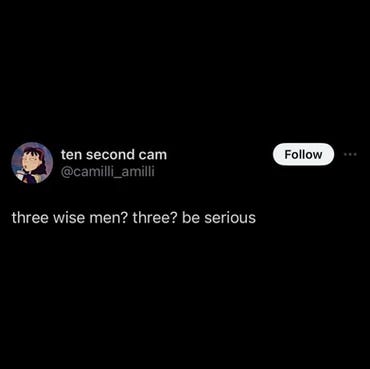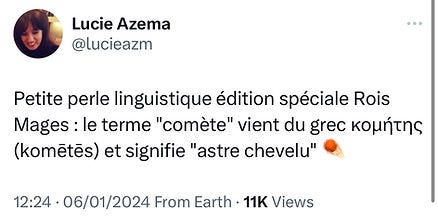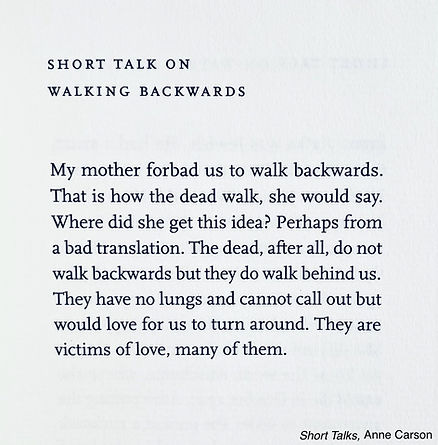Epiphany
“When I’m a bit more settled, I'll write again,” except, it will be unsettling. Better to publish strange essays about wise men and witches. (Originally published on my website in January 2024.)
”In the New Year,” I’d think, “When I’m a bit more settled, I’ll write again.” Well here we are. I’ve received the excellent advice, time and again, not to put pressure on writing. That advice is not the Epiphany in question (and not so much an “epiphany” at all, as I’ve heard it enough time to make my ears bleed). Thanks a million to the magi in my life who continue to encourage me as I procrastinate writing; your wisdom keeps my notebooks fed.
Saturday was Epiphany, or Three Kings’ Day: all week, three shadows have journeyed behind my closed eyes, following a hairy star in the heavens, blindly (as the faith-ful must be). I wonder, as I often do of Biblical characters—didn’t they doubt? What kind of fire must they have had in themselves to carry riches across unknown lands to pay fealty to a stranger king? I used to believe faith came from certainty, a whisper everyone must hear but me; it’s no wonder I couldn’t commit to any project, waiting for the certainty that the One would succeed. But what kind of fire can I kindle in myself; can I let myself believe in an idea long enough to chase it across the sky?
And what if you believe, you try, but it doesn’t succeed? What if there’s no pot of gold at the end of the rainbow, no baby in the manger? Where’s the reward for seeking?
In Italian folklore, the three wise men meet Befana on the road they’re tracing by starlight. They ask her for help navigating, which she cannot give. But she’s the best housekeeper in town, and puts them up for a night. (Is there an Italian equivalent of xenia?) They invite her to tag along to find the Son of God—tempting!!—yet it’s so cozy at home…—and now they’ve gone, but wasn’t it a marvelous quest, wouldn’t it be wonderful to join? She does set out, eventually, but never catches up. She searches high and low for the stranger king, every Epiphany eve, leaving caramelle or carbone for good or bad children, and at the end of the night goes back home. (I hope she gets a big kiss on the forehead from Jesus at the Second Coming…)
I feel so tenderly for Befana, who just wanted to stay warm by the fire, whose hospitality was worthy of Kings. Yet even she yearns, even she leaves home. The three kings chased a dream and found it, and she couldn’t follow. But is her search futile?—Leaving her hearth on a cold January night every year in search of a long-dead messiah—Why doesn’t she give up?—Leaving fruit and candy (or coal…) for each child she encounters, there must have been thousands (upon thousands) by now. It seems to me like she set out with one dream and found a thousand others along the way.
Gabriel Conroy attends a dinner on Epiphany Eve in James Joyce’s The Dead. He spends much of the evening worrying about the lack of wise men to understand his speech. He knows so many sophisticated things, he imagines them inaccessible to the unacademic party, and yet—he does not know, not about Michael Furey.
Well, should I despair—of following a star to nowhere?—of seeking a long-gone king?—of arriving, and finding the dead?
Gabriel is never more at peace than when confronted with the things he cannot know. He falls asleep “among the living and the dead.” With his wife asleep beside him, haunted by unknowable ghosts, he looks through the falling snow through his window and his soul swoons.
I’ve got to believe there’s no certainty to be found which will give me comfort. There probably is no greatest work, nor best idea. There is no straight road to the stranger king.
“He stretched himself cautiously along under the sheets and lay down beside his wife. One by one, they were all becoming shades. Better pass boldly into that other world, in the full glory of some passion, than fade and wither dismally with age.”
“When I’m a bit more settled, I'll write again,” except, it will be unsettling. But I must have had to hesitate—yet it’s so cozy at home…—to find the strength to walk backwards. Better go blindly into a “grey impalpable world.” Better kindle my fire with caramelle in my pocket. Better publish strange essays, about wise men and witches.
NOTA BENE
Or, a post-script...
More good things.
Bloomcast Holiday Special: "The Dead"
"Louise Glück, The Art of Poetry No. 115" - Interviewed by Henri Cole
"Reading Anne Carson's Reissued Short Talks" - Iris Dunkle
The Master and Margarita - Mikhail Bulgakov (recently finished)
Sister Outsider - Audre Lorde (currently reading)
The Book of Goose - Yiyun Li (up next)
Galette des rois.
The best part of Epiphany comes in dessert form, though unmentioned above, probably because of its unproblematic and therefore slightly uninspiring nature. Not all pleasures must inspire poetry. (I will not opine about whether apple or frangipane filling is better…) Pictured here with the probable subject of a future post: better write about witches, indeed...











